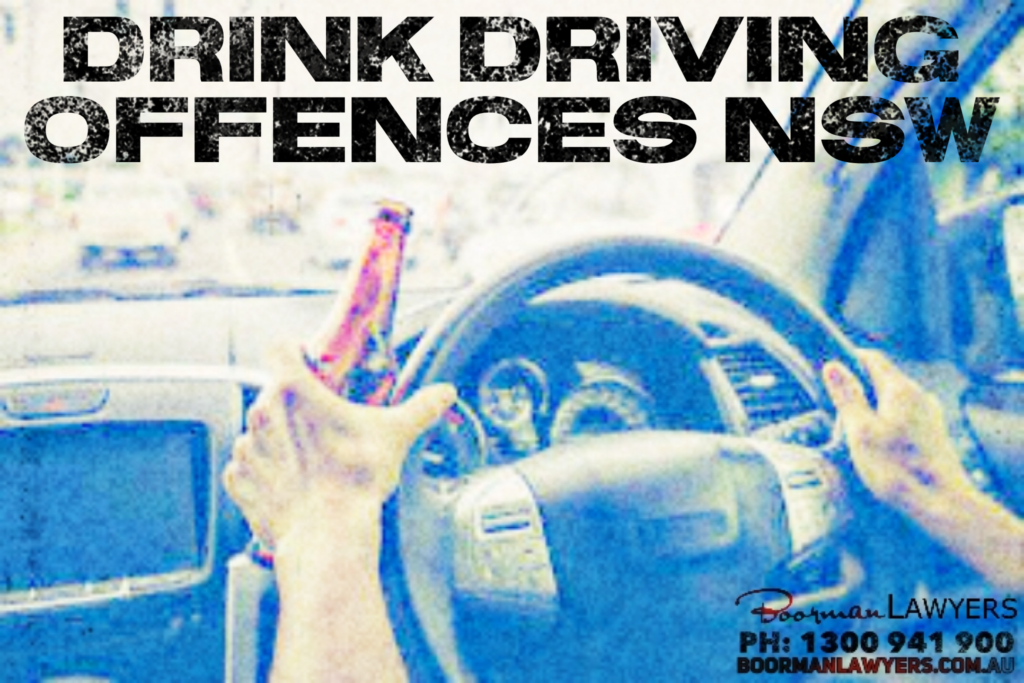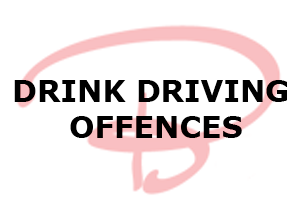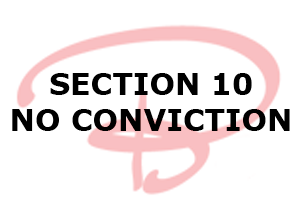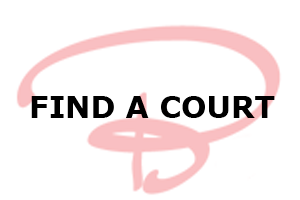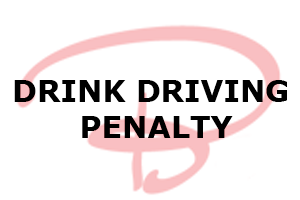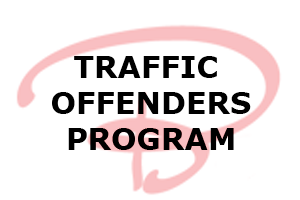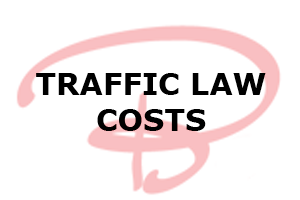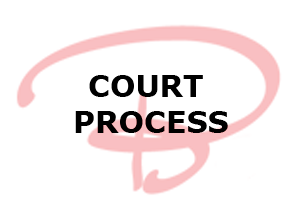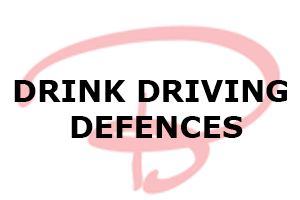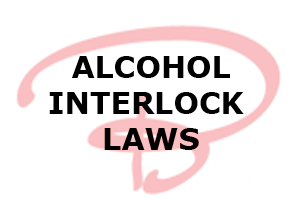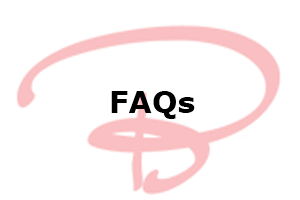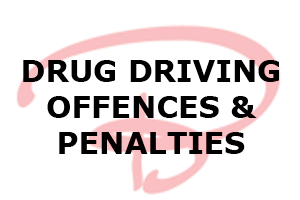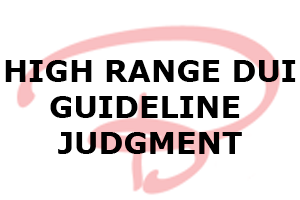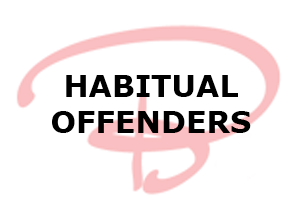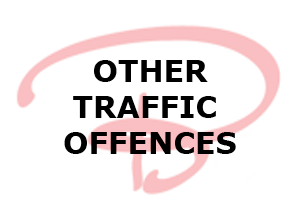Drink Driving Offences NSW: Our "Boorman Lawyers - Traffic Law" division takes a look at the various different alcohol related traffic offences which appear before the Court system on a daily basis throughout New South Wales.
Drink Driving Offences NSW
The level of intoxication is definitely one major factor which determines the seriousness of a drink driving offence. There are many other types of subjective and objective features of a particular drink driving offence will be taken into account by the Court in deciding how to deal with the matter.
Most importantly however you should know that the Courts and the community take drink driving offences extremely seriously and this is predominantly due to the fact that drink driving within our community poses a huge risk to the safety of the average citizen and other drivers on our roads.
We have seen in recent times the Court system and Parliament impose strict new laws in order deter people from the ever increasing problem of drink driving in our society. In particular new laws have come into place as of 1 February 2015 which make it mandatory for repeat offenders or high range drink drivers to enter into an alcohol interlock program for a specified period of time.
If you are in a situation where you have been charged with drink driving offence in New South Wales then you can expect to receive some period of disqualification of your drivers license, also a monetary fine and a criminal conviction. If you are a repeat offender or there are some significant aggravating features surrounding your drink driving incident then you could very well face a more severe sentence from the court including a custodial term of imprisonment.
In order to avoid a disqualification of license and a criminal conviction the only way that you can achieve this in New South Wales is to either plead not guilty and have the charges dismissed at a defended hearing or by pleading guilty to obtain what is called a section 10 dismissal.
The most common types of drink driving or alcohol related traffic offences in New South Wales are Prescribed Concentration of Alcohol (PCA) offences. The Blood Alcohol Concentration (BAC) limit for the various levels of PCA offences include:
Section 108 of the Road Transport Act 2013 - Prescribed concentrations of alcohol
- Novice range prescribed concentration of alcohol means a concentration of more than zero grams, but less than 0.02 grams, of alcohol in 210 litres of breath or 100 millilitres of blood.
- Special range prescribed concentration of alcohol means a concentration of 0.02 grams or more, but less than 0.05 grams, of alcohol in 210 litres of breath or 100 millilitres of blood.
- Low range prescribed concentration of alcohol means a concentration of 0.05 grams or more, but less than 0.08 grams, of alcohol in 210 litres of breath or 100 millilitres of blood.
- Middle range prescribed concentration of alcohol means a concentration of 0.08 grams or more, but less than 0.15 grams, of alcohol in 210 litres of breath or 100 millilitres of blood.
- High range prescribed concentration of alcohol means a concentration of 0.15 grams or more of alcohol in 210 litres of breath or 100 millilitres of blood.
The laws which relate to PCA offences in New South Wales are found at Section 110 of the Road Transport Act 2013, these offences include:
Novice Range Drink Driving NSW
A novice range drink driving offence is generally laid upon a person when it is proven that their blood alcohol concentration reading is above 0.00 but below 0.020.
Even though the blood alcohol concentration reading is relatively low compare to other drink driving related offences this does not mean a novice range drink driving offence is not serious. In fact quite the contrary a person who has been charged with a novice range drink driving offence by law generally means that they have a zero blood alcohol reading limit. People with certain licenses such as Learner or Provisional drivers license have far less experience in driving and will have a zero blood alcohol limit and therefore if a person is charged with a novice range drink driving offence it generally means that they lack experience and any amount of alcohol in their system is deemed to be a serious matter.
In New South Wales relevant legislation for a novice range drink driving offence is section 110(1) of the road transport act 2013. The relevant section is outlined below:
110(1) Novice range presence of prescribed concentration of alcohol in person’s breath or blood
(1) Offence-novice range prescribed concentration of alcohol A novice driver must not, while there is present in the driver’s breath or blood the novice range prescribed concentration of alcohol:
(a) drive the motor vehicle, or
(b) occupy the driving seat of the motor vehicle and attempt to put the motor vehicle in motion.
Special Range Drink Driving NSW
A special range drink driving offence is an alcohol related traffic offence in New South Wales which police will lay upon a person who is blood-alcohol rating is above 0.020 and below 0.050.
It is important to note that the special range drink driving category has a lower blood alcohol limit than that of your typical license holder in New South Wales. This is because the special range PCA category relates to special licence holders within our community who have a higher level of responsibility when driving on our roads.
Special Category Drivers that are subject to Special Range Drink Driving Offences include:
- Learner drivers;
- Provisional drivers;
- Unlicensed, suspended, disqualified or cancelled drivers;
- Where the driver is carrying passengers for reward or hire e.g. taxi, limousine etc;
- Where motor vehicle is a coach;
- Where the motor vehicle is GVM exceeding 13.9 tonnes;
- Where motor vehicle is being used with a trailer and the combined is GVM exceeding 13.9 tonnes;
- Where the motor vehicle or trailer is carrying dangerous goods or radioactive substances.
The relevant laws for special range drink driving in New South Wales come under section 110(2) of the Road Transport Act 2013 as outlined below:
110(2) Special range presence of prescribed concentration of alcohol in person’s breath or blood
(2) Offence-special range prescribed concentration of alcohol A person must not, while there is present in the person’s breath or blood the special range prescribed concentration of alcohol:
(a) if the person is a special category driver in respect of a motor vehicle-drive the motor vehicle, or
(b) if the person is a special category driver in respect of a motor vehicle-occupy the driving seat of a motor vehicle and attempt to put the motor vehicle in motion, or
(c) if the person is a special category supervisor in respect of a motor vehicle and the holder of an applicable driver licence (other than an applicable provisional licence or applicable learner licence) occupy the seat in a motor vehicle next to a learner driver who is driving the vehicle.
Low Range Drink Driving NSW
One of the most common types of drink driving offences that comes before the Courts in New South Wales is that of a Low Range PCA offence otherwise known as Low Range Drink Driving.
A person will be charged with a low range drink driving offence when their blood alcohol reading is recorded between 0.050 to 0.080.
This drink-driving category will apply to most drivers on our roads and certainly those drivers to hold their full unrestricted drivers license and also any other persons to and not specified within the special range category as described above.
Despite the low range drink-driving category meaning that a person does not have to consume and large amounts of alcohol to be over the lower range threshold, it is still deemed a serious offence in the eyes of the court system and our community. Anyone with a reading in the lower range drink-driving category, despite how much they have had to drink, will be deemed to be affected by alcohol and therefore be a risk and danger to people within our community or other drivers on our roads.
Police will generally describe a low range drink driver as a person who is slightly affected by intoxicating liquor.
Most people who have been charged with a low range drink driving offence will receive a fine, a license disqualification and also a criminal conviction. However in certain cases the court may see fit to deal with a low range drink-driving matter by way of a sec 10 which means that there is no fine, no license disqualification and no criminal conviction. To obtain a sec 10 a variety of different issues and features will need to be present and it will also come down to how the magistrate views the particular case.
The legislation that applies to low range drink-driving offences in New South Wales comes under sec 110(3) of the road transport act 2013, this section is outlined below:
110(3) Low range presence of prescribed concentration of alcohol in person’s breath or blood
(3) Offence-low range prescribed concentration of alcohol A person must not, while there is present in the person’s breath or blood the low range prescribed concentration of alcohol
(a) drive a motor vehicle, or
(b) occupy the driving seat of a motor vehicle and attempt to put the motor vehicle in motion, or
(c) if the person is the holder of an applicable driver licence (other than an applicable provisional licence or applicable learner licence)-occupy the seat in a motor vehicle next to a learner driver who is driving the vehicle.
Middle Range Drink Driving NSW
Another very common type of drink driving offence that often occurs in New South Wales is a middle range PCA offence or otherwise commonly known as mid range drink-driving.
The blood alcohol concentration reading for a person who is charged with a middle range drink driving offence is between 0.080 and 0.150.
The offence of middle range drink-driving is seen as a very risky and dangerous type of offence which can potentially cause a detrimental consequences to other drivers on the roads and other people within our community. The reason this is so is because a person who has a blood alcohol reading within the middle range category is deemed to be moderately affected by alcohol and poses a significant risk to causing harm whilst in charge of a motor vehicle.
When a person has been charged with middle range drink-driving often the police will state in the police fact sheet that the driver is moderately affected by intoxicating liquor.
Penalties for mid range drink-driving offences are significantly increased and the ability to octane a sec 10 dismissal becomes increasingly harder to obtain however depending on the circumstances of the case a section 10 dismissal is still available at the courts disposal.
Below we detail the New South Wales legislation which relates to middle range drink-driving this comes under sec 110(4) of the road transport act 2013:
110(4) Middle range presence of prescribed concentration of alcohol in person’s breath or blood
(4) Offence-middle range prescribed concentration of alcohol A person must not, while there is present in the person’s breath or blood the middle range prescribed concentration of alcohol:
(a) drive a motor vehicle, or
(b) occupy the driving seat of a motor vehicle and attempt to put the motor vehicle in motion, or
(c) if the person is the holder of an applicable driver licence (other than an applicable provisional licence or applicable learner licence)-occupy the seat in a motor vehicle next to a learner driver who is driving the vehicle.
High Range Drink Driving NSW
The offence of high range PCA or high range drink driving is one of the most serious drink driving offences that a person can be charged with in New South Wales. When a person is charged with a high range drink driving offence this will mean that their blood alcohol limit is 0.150 or higher.
When a person has a blood alcohol reading which is in the high range category then this means that they pose a significant risk to other drivers and other people within our community. Certainly the higher the blood alcohol reading is above the 0.150 limit then greater the aggravating feature is.
Police will generally describe a person who has been charged with a high range drink driving offence as being well affected by intoxicating liquor. Studies have shown that people who have a blood alcohol limit in the high range will mean that their ability to safely operate a motor vehicle will be significantly affected posing a greater risk to other drivers on the road.
The Court system in New South Wales has made it very clear that it will deal with high range drink driving offenders harshly and swiftly in accordance with the law and the vast array of penalties which are available at the Courts disposal.
The legislation that applies to high range PCA offences in New South Wales comes under sec 110(5) of the road transport act 2013, take a look at the section below:
110(5) High range presence of prescribed concentration of alcohol in person’s breath or blood
(5) Offence-high range prescribed concentration of alcohol A person must not, while there is present in the person’s breath or blood the high range prescribed concentration of alcohol:
(a) drive a motor vehicle, or
(b) occupy the driving seat of a motor vehicle and attempt to put the motor vehicle in motion, or
(c) if the person is the holder of an applicable driver licence (other than an applicable provisional licence or applicable learner licence)-occupy the seat in a motor vehicle next to a learner driver who is driving the vehicle.
Drive Under the Influence (DUI) NSW
In addition to PCA drink driving offences there is also an alcohol related traffic offence called Drive Under the Influence otherwise known as DUI.
Most people refer to all types of alcohol related traffic offences simply as DUI. However, in New South Wales the offence of Drive Under the Influence specifically relates to a charge which means that a persons blood alcohol reading is unable to be tested with a breath or blood alcohol testing instrument. Instead police are able to lay the charge of Drive Under the Influence of intoxicating liquor by making close and detailed observations of their behaviour during and immediately after operating a motor vehicle.
Often is the case where police are unable to test a persons breath or blood alcohol so they must rely on their experience and expertise in assessing whether they believe through their observations that a person is affected by intoxicating liquor. If the police officer, through their observations, believe that a person is affected by intoxicating liquor or drugs then they will generally lay a charge of Drive Under the Influence.
This can commonly occur where a person has been said to have been driving or operating a motor vehicle and police have taken up with them at their place of residence. The law says that police are not allowed to breath test someone who is on their residence or place of abode however if they have witnessed the person driving and have taken up with them on their property then they can lay a charge of Drive Under the Influence instead of an offence under the Prescribed Concentration of Alcohol (PCA).
In reality the offence of Driving Under the Influence or DUI is considered very serious because evidence will be given to the Court that the accused was affected by intoxicating liquor however it is unable to be proven exactly what the persons true blood alcohol limit was at the time of driving. Ultimately the Courts will deal with a DUI offence in the same way that they deal with middle range PCA offences in New South Wales.
The legislation which deals with the offence of drive under the influence or DUI in New South Wales comes under section 112 of the Road Transport Act 2013. This section is outlined below:
(1) A person must not, while under the influence of alcohol or any other drug:
(a) drive a vehicle, or
(b) occupy the driving seat of a vehicle and attempt to put the vehicle in motion, or
(c) if the person is the holder of an applicable driver licence (other than an applicable provisional licence or applicable learner licence)-occupy the seat in or on a motor vehicle next to a learner driver who is driving the vehicle.
(2) If a person is charged with an offence against subsection (1):
(a) the court attendance notice may allege the person was under the influence of more than one drug and is not liable to be dismissed on the ground of uncertainty or duplicity if each of those drugs is described in the court attendance notice, and
(b) the offence is proved if the court is satisfied beyond reasonable doubt that the defendant was under the influence of:
(i) a drug described in the court attendance notice, or
(ii) a combination of drugs any one or more of which was or were described in the court attendance notice.
Wilfully Alter Blood Alcohol Concentration NSW
The offence of Wilfully Alter Blood Alcohol Concentration can be laid by police when a person who has consumed intoxicating liquor then takes specific steps between the time of driving and the time in which they are tested in order to alter, mask or manipulate in someway their true Blood Alcohol Concentration (BAC) reading.
The most common examples where an offence of Wilfully Alter Blood Alcohol Concentration occurs is when a person either consumes a substance which could possibly change on manipulate the person is true blood alcohol reading.
Alternatively, where a person has for example been involved in a car crash and they say that at the time of driving they were sober but then they decided to go and drink a large amount of alcohol after the crash then this could mean that the police may charge them with this offence of Wilfully Altering their Blood Alcohol Concentration reading because it would have been different or it would have changed from the time when they were tested to the time of event of driving the motor vehicle.
These types of offences are deemed to be extremely serious and are considered as serious as a high range PCA offence or a refuse or fail breath analysis offence which carry significant penalties and sentences at the Courts disposal.
The law which relates to this offences is pursuant to Schedule 3, Part 2, section 18 of the Road Transport Act 2013 as partially outlines below:
18 Offences-wilful introduction or alteration of concentration or amount of alcohol or other drugs
(1) A person (other than a secondary participant in an accident) must not wilfully do anything:
(a) to alter the concentration of alcohol in the person’s breath or blood between the time of the event referred to in clause 3 (1) (a), (b) or (c) in respect of which the person has been required by a police officer to submit to a breath test under Division 2 and the time when the person submits to that test, or
(b) to alter the concentration of alcohol in the person’s breath or blood between the time of the event referred to in clause 3 (1) (a), (b) or (c) in respect of which the person has been required by a police officer to submit to a breath test under Division 2 and the time when the person submits to a breath analysis under that Division, or
(e) in the case of an accident involving the person-to alter the concentration of alcohol in the person’s blood (except at the direction or under the supervision of an appropriate health professional) between the time of the accident concerned and the taking of a sample of the person’s blood in accordance with Division 4.
Refuse or Fail Breath "Test" NSW
When a person is pulled over by police for the purpose of giving a breath test then it is a criminal offence to either refuse to provide that breath test or to fail the breath test after being provided with sufficient opportunity to provide a sample.
Police will generally offer a person the opportunity to provide a breath test as a preliminary indicator to assess whether there could be a positive blood alcohol reading on that person's breath.
If the person refuses to provide a breath sample then police have the ability to charge them with an offence of refuse to provide a breath test.
If the person fails to provide a sufficient breath sample during this test then as a matter of procedure police will generally offer them three (3) attempts in which to provide an appropriate breath sample. If the person fails those three (3) attempts then they are at risk of being charged with refuse or fail to provide a breath test.
Once a person either refuses or fails to provide a sufficient breath sample police will usually insist that they provide a more accurate breath sample by way of a breath analysis.
Refuse or Fail Breath "Analysis" NSW
Similar to the offence of refusing or failing to provide a breath "test", this offence of refusing of failing to provide a sufficient breath "analysis" is a far more serious offence because it basically means that police are unable to assess what your true blood alcohol reading is.
By way of procedure police will generally offer a person three (3) attempts in which to provide an appropriate breath "analysis" sample however should they fail those attempts or refuse to provide an appropriate sample then they are at risk of receiving a charge of refuse of fail breath "analysis".
Such an offence is deemed very serious by the Courts and is usually considered on the same level of seriousness as a higher range PCA offence which can carry significant penalties and sentences."
Choose Your Topic
BRISBANE • GOLD COAST • SYDNEY
Related Topics
DRINK & DRUG DRIVING
TRAFFIC LAWYERS
COURTS WE ATTEND
DUI RESOURCES
MORE INFORMATION
Boorman Lawyers NSW & QLD Solicitors
Brisbane QLD 4000
Gold Coast QLD 4217
Sydney NSW 2000
1300 941 900
Office Hours:
Monday: 8:30am-6pm
Tuesday: 8:30am-6pm
Wednesday: 8:30am-6pm
Thursday: 8:30am-6pm
Friday: 8:30am-6pm
5 Star Google Reviews
![]()

